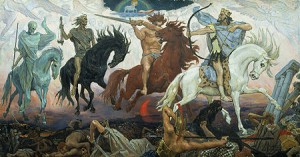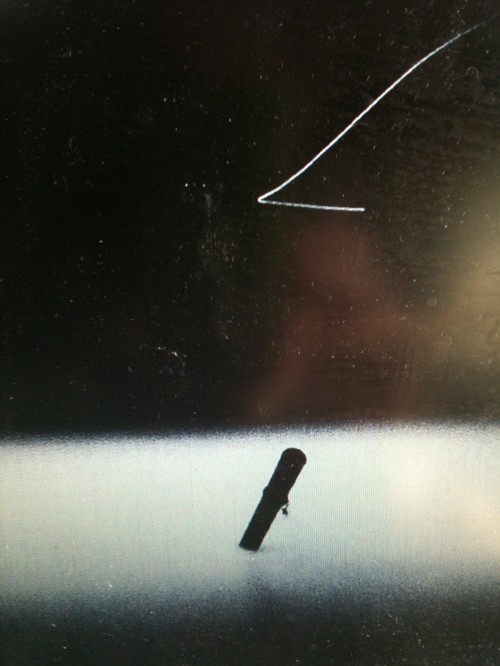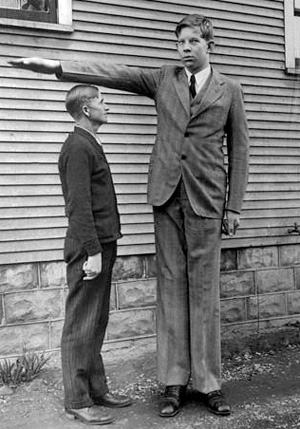MFApocalypse
 Well, it’s finally started happening. Penn State’s MFA program decided to commit harakiri rather than go on forcing its students to go into debt over a degree to no where. I don’t think it will be the last we’ll see to go. I don’t even know if it’s the first (and it seems likely that it isn’t.)
Well, it’s finally started happening. Penn State’s MFA program decided to commit harakiri rather than go on forcing its students to go into debt over a degree to no where. I don’t think it will be the last we’ll see to go. I don’t even know if it’s the first (and it seems likely that it isn’t.)
Tell me the last time you quit a job. That’s a tough thing. You have to look at yourself and suck up and do it. Paint it for me. Then you must look at “that person” when you quit. Tell me how/why. I bet there are “hell yes I quit” and “why did I quit?” and the other thing, the space between the two.
Tell me how you felt. I mean this could be good. I’d like to hear your stories. I will NOT rip them off for my fiction, until I DO.
BONUS: Ever been fired? I was fired twice. Both lovely stories.
Old Future

One year ago on February 16, 2011, as Odd Future made their television debut on Late Night with Jimmy Fallon, maniacally performing “Sandwiches” in their nerd/hipster-thug stage presence, a girl dressed as Sadako from Ring (1998) and/or its remake The Ring (2002) listlessly stood around in clear view on stage with them, as if recently excised from hikikomori, a “midbrow” pop-conscious nod which I’ve always found interesting, if not brilliant. Where Warhol and Koons seem to didactically curate their references, attached to their affected semiotic detachedness, it is rap’s erratic and somewhat manic collision/collation of culture which is our “true,” or at least more effective commentary. At one point, near the loud climax of the song, cymbals crashing, bros screaming, Sadako cowers with hands over her ears — as if suddenly transported into the NBC studio on 49th street. Though it may be her fault, one imagines, her voluntary entry into our real world as she climbs out of the television, scaring the shit out of everyone in front of their own televisions at home. The artifice’s protective medium of the screen was now broken, its very transgression part of the narrative. And when Tyler the Creator jumped on Fallon’s back as the latter bid his audience adieu, the former made odd (somewhat unfortunate, immune to irony) Blackface expressions with almost apelike movements. It’s hard to know how subtle, if any, his sarcasm was. Was it the self-critique of concession to corporate complicity (a la Cobain’s “Corporate Magazines Still Suck” t-shirt for their Rolling Stone cover), or Tyler simply now had a friend in Fallon, a fellow conspirator in the conspiracy of success. One year later, they are not news anymore, the future turns old; another group of young highly intelligent men in an alt-rock or rap band will be heralded as the real deal. Every generation wants to believe what they see before them on a screen somehow transcends the shallow vapidity from which it cometh, even a cute girl on your floor, actually smiling behind all that hair.
Lars Von Trier’s Melancholia: Homage Without Artistry
In the opening extreme slow-motion shots (the only appetizing thing in the Melancholia, though these brief scenes seem to be leftovers of his style in Antichrist), Lars Von Trier pays homage to no less than four masters: Ingmar Bergman (the close-up of Kirsten Dunst), Alan Resnais’s Last Year at Marienbad (the giant hedge garden, with tree shadows this time), Stanley Kubrick’s 2001: A Space Odyssey (the slow planetary movements to classical music), all of Andrei Tarkovsky, but specifically Solaris (the Breughel painting) and The Mirror (objects falling in slow-motion, a fire seen through a window)—the end of the world scenario while people bob and weave around an opulent country house is right out of Tarkovsky’s The Sacrifice. Von Trier’s whole opening sequence mirrors the opening to his Antichrist (using Handel’s music instead of Wagner) which scintillatingly displayed intercourse and the death of a child. One can only hope that Von Trier will go beyond homage and create something compelling, but it is not to be.
The Title

In so much art, I can smell the author’s desire for me to be more interested in how they and/or their characters interpret and inhabit boredom than actually doing something. Simple action. Anybody involved doing anything. I’m thinking here of The Stranger, The Third Reich by Roberto Bolaño, The Immoralist. The strung along. The boredom of relative luxury. How this seems to at least temporarily obliterate any internal gyre of philosophy or gut thought that would lead to decisions being made and bodies being moved, followed then by trailing thought, fallen out words. Is there a novel out there concerned mostly with people moving and acting with little thought, but in which plot in its traditional patterns of building (attention, suspense, terror) does not build its usual cores but delves or unearths something deeper in its time: meaninglessness? Beckett, I guess, right? Of Molloy. And not yet just a list of actions but a trail of subsumed desire, of wiped want, or cleaned out intuition. Belief born without a tail. Who’s out there? And how are they speaking? And in that smell, be it a pleasant suprasense or the shit of deadening culture, you can either yes to it or no and walk away, close the book. Off the screen. Say hi to a realm of light and seeming chaos that somehow provides you wind.
But meaninglessness is tricky. Just as the word impossible is framed by a language that both codes it and decodes it simultaneously (it’s a combustive word; no wonder artists take it as such an engine), meaninglessness doesn’t truly touch through the black skein of a void, the void, void. We know it just gestures. (from Mark Leidner: poetry like the Midas of meaning; everything you reach for is dissolved in the spectacle of the gesture) So we’re left with a hologram of a projection of deeper sense or finality: we’re left just out of reach of the point of cataclysm, or at least where the earth can break through enough to swallow its container. It’s not geometrical at all, nor is it a sphere without a skin: in a way, culture in its progression, bacterial (maybe moreso than a viral way), keeps as its form the method by which we can get as close to a system of thought’s event horizon. A hollow zone where the force holding you in place is milliseconds away from its pull toward another place: lesser star, complete off.
I dreamed earlier today about writing I am paralyzed. In the near immediate wake of death. And how, seeming to me then in the open dream, that must necessarily precede a statement of numerical precision: how many times the page itself I had typed or tapped onto white had been deleted. And reformed, necessarily. All I’m thinking about now is how the Dionysian and the Apollonian were easy outs. It seems to me both of those frames of vision have a third hand somewhere: just out of frame, the marble grates against its mate. Touch.
Some Thoughts on the Books I Checked Out of the Library Today
I am still in college. I think maybe you know that. Monday through Thursday I wake up sometime between 9am and 12pm and drag my sallow little ass from Ave C to Washington Square, where I study, predominantly, English and American literature. Today one of my classes was cancelled, so after sitting through a 75 minute lecture on Chaucer’s “The Miller’s Prologue and Tale” (what a laugh that one is, let me just say), I decided to stop by the university library to take out some books that I could enjoy in the park. Here is a picture of the books:

Below are some thoughts on those books.
A Craving for Swan by Andrei Codrescu
I went looking for a book of selected poems between 1970 and 1980 by this guy. The library said they had it, but the library says a lot of things. I flipped through all the Codrescu they had. As far as I can tell he’s a Romanian with quite a history and a track record of being funny and influential. He works for NPR and has for a long time. Nothing looked appealing. I was about to walk away when I noticed A Craving for Swan. I think maybe it was misplaced or something, or otherwise I didn’t care to look at it when I was flipping through the other books. Anyway, I opened it up. It’s a book of short essays, most less than two full pages, that Codrescu had read on NPR’s “All Things Considered” between 1983 and 1985. I opened to a random page and read one of the essays. I don’t remember what it was about or what it was like. Then I went to the first page. The essay started with something like “One day I found myself with a strong craving for swan” or something. I stopped reading and took the book with me.
Wednesday Reading
Jonathan Franzen doesn’t like e-books. I read Freedom on my Kindle. If he wants to defend printed matter, he should maybe not write a book that weighs a million pounds (KIDDING). Also, Franzen’s least favorite things (via The Millions). Franzen is angry in a placid, intellectual way.
At N Plus One, Molly Fischer discusses lady blogs. And then there’s this wonderful response. I enjoy some lady blogs and especially The Hairpin but appreciated both perspectives.
Is anyone reading Caitlin Flanagan’s Girl Land? Fascinating, yes?
Barnes & Noble is taking a stand against Amazon’s encroachment on the publishing industry.
Speaking of people making Amazon-related decisions, Goodreads is transitioning to new data sources.
Also, Amazon’s earnings fell. Rough week for them, but like Drago in Rocky 4, they’ll muscle through until a Rocky rises out of the Siberian chill to put up a good fight.
At Largehearted Boy (celebrating its tenth anniversary), Hanne Blank shares her book notes from her recently released Straight: The Surprisingly Short History of Heterosexuality, which got a great review in The New York Times. There’s also an interesting interview with Blank at Salon.
John Scalzi is contributing the proceeds of his e-book sales from his titles at Subterranean Press to Planned Parenthood for the next week.
Here’s an interesting piece on how records are made, literally.
Erica Dreifus offers a list of places where you can submit your flash nonfiction.
Colossal, an art and design blog, always has really unique art to look at.
Tao Lin’s Big Kid Book Deal
I hope this is the last time I’ll find myself writing about Tao Lin. In July I wrote a lengthy story for The Morning News that delved into Lin’s publishing venture, Muumuu House, and looked at a few of the prominent (allowing for a loose definition of “prominent”) writers in his literary cadre. (The post engendered quite a comment chain on this very site.) Mere weeks later, Lin landed a $50,000 book deal with Vintage for his next novel. And that was when someone commented on the Morning News piece that they’d be “interested in an update on all of this” (presumably they meant an update from me) and wondered whether his deal would “change things.”
It does change things, yes. The fact that his next novel (it’s tentatively called Taipei, Taiwan) will come out under the Vintage label means that, like it or not, it’s going to get a lot more notice than his books have had in the past when published by Melville House. And that’s no knock on Melville House, which does a fabulous job both with publicity (the Moby Lives blog is fun and occasionally gets good pickup on Twitter etc.) and with the aesthetic look of its titles (see: the Art of the Novella series). But it’s still a tiny press. A book published by Vintage will be seen, not just by critics that have managed to avoid Lin and maybe still haven’t even heard of him, but also by mainstream readers, the Barnes & Noble shoppers who have definitely not heard of him and who read the Stieg Larsson trilogy. This isn’t to say they’ll pick up the novel and buy it, but it may catch their eye, they’ll take a look, and now they’ll know who or what a Tao Lin is.




